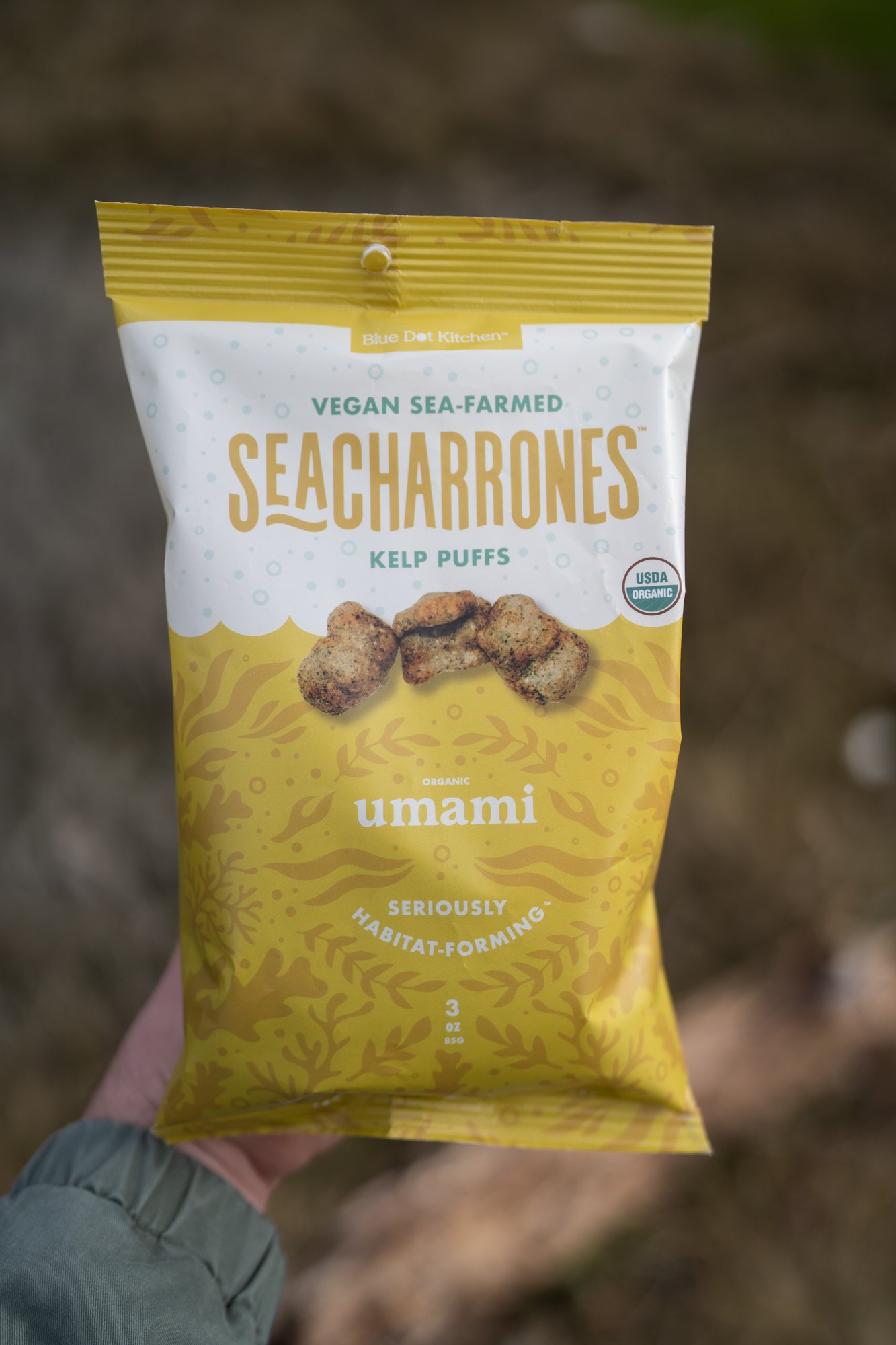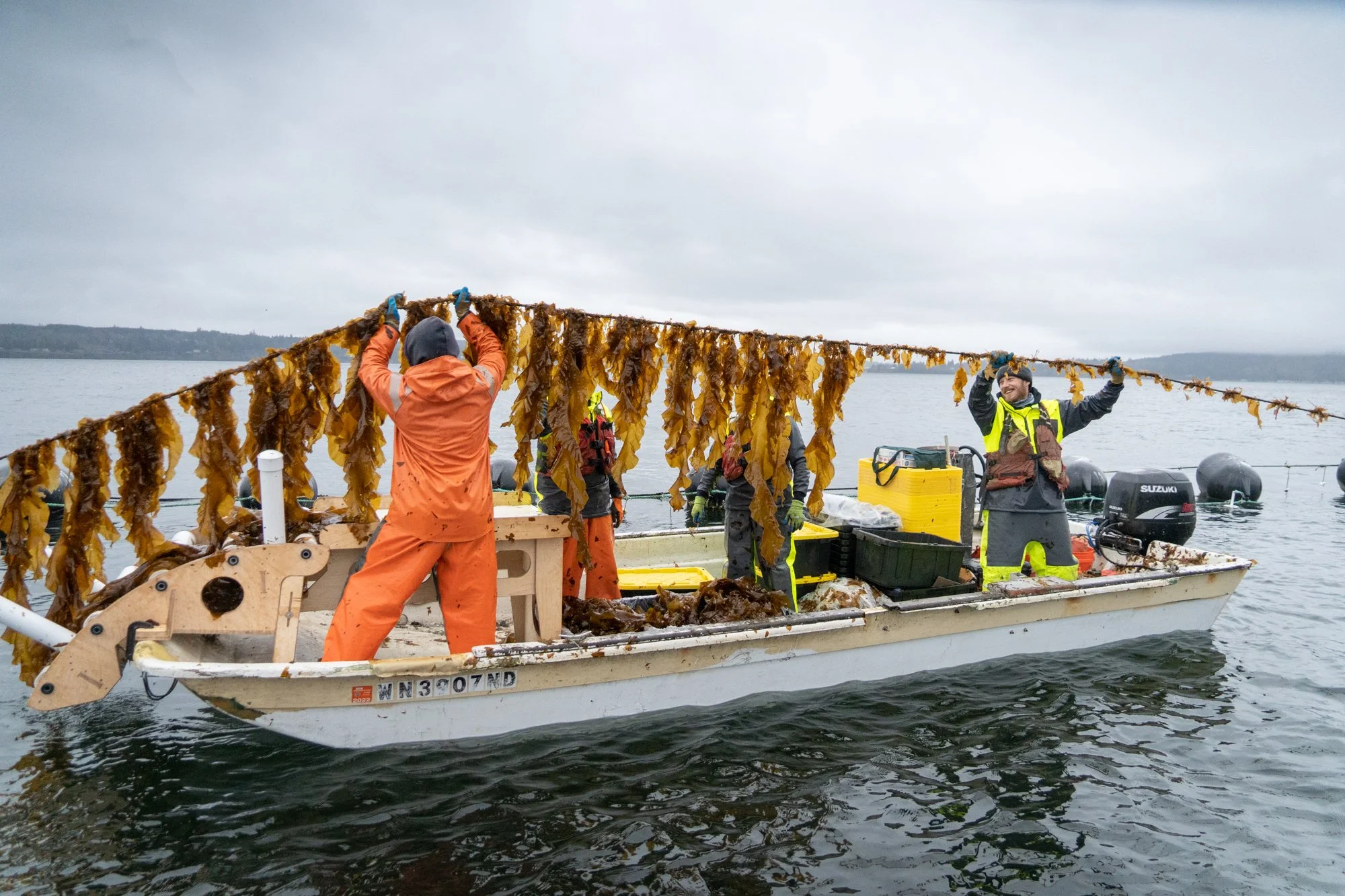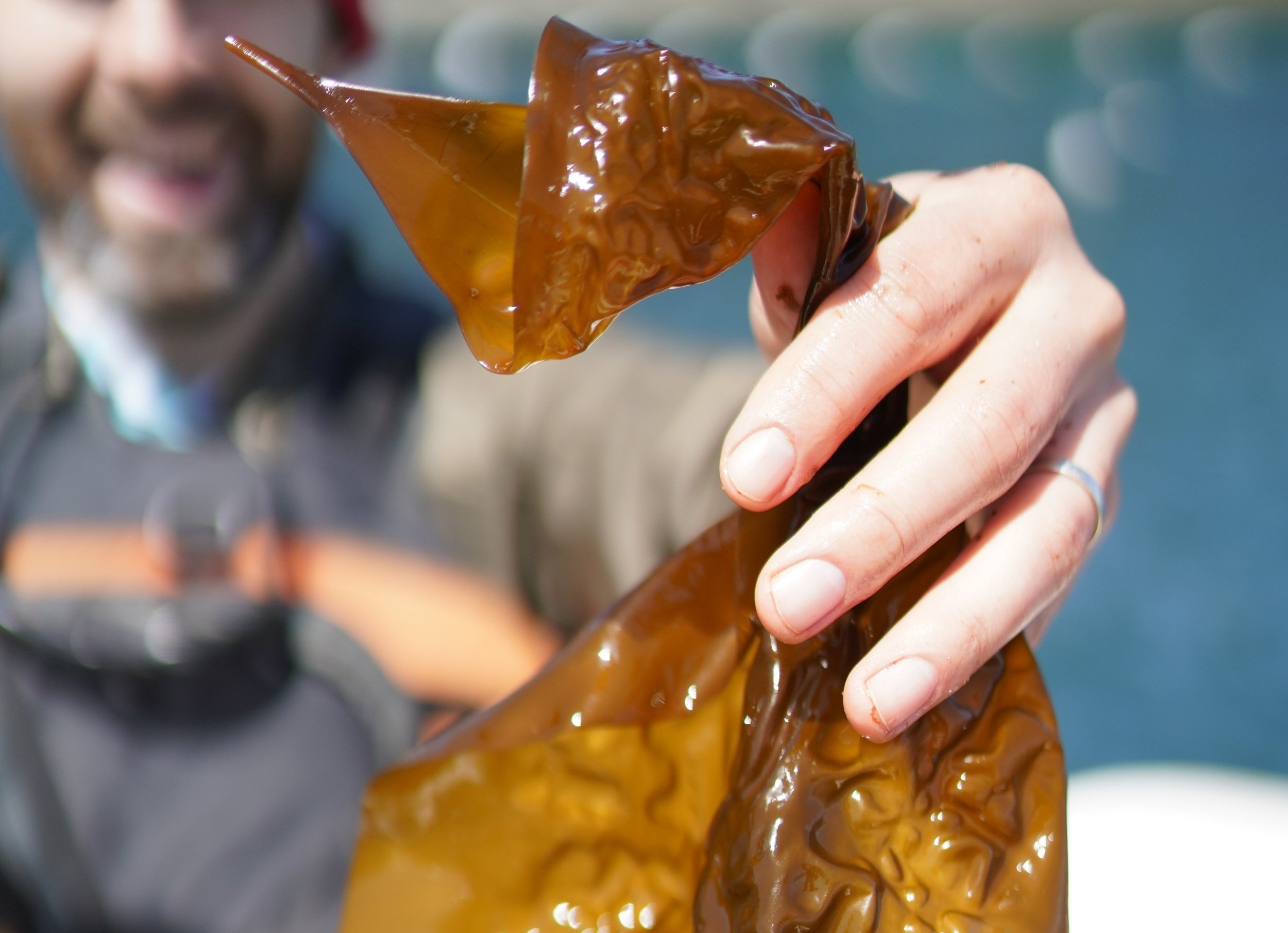the life aquatic
A seaweed farm aims to turn the tide on climate change
Words by Kevin Dwyer
Kelp removes up to 20 times more CO2 per acre from the atmosphere than land forests.
Sometimes life is serendipitous, and chance meetings turn into legitimate opportunities. That’s more or less what happened with the evolution of Blue Dot Sea Farms, a grower and harvester of kelp and shellfish that is doing its bit to help fight climate change.
The aquaculture farm, located just off of Hood Head on the Hood Canal, has been operating since 2019. But the idea emerged nearly two decades ago when one of its three Bainbridge Island principals, Michael Rosenthal, spotted a pick-up truck next to his vehicle on the Seattle-Bainbridge ferry run “with a bunch oysters” in the back.
But back then, he was winding down a 20-year career as a crab ship captain in the Bering Sea and was looking for another aquatic adventure. When he returned to the ferry deck that day, he began talking with Joth Davis, the oyster hauler, and before long the two were exchanging information and idea a scientist and owner of a family shellfish company, found a five-acre site that would eventually become Blue Dot Sea Farms, and the two purchased it.
“At the time we both had other things going on,” recalls Rosenthal. “We tried things and had a lot of spectacular failures.” Over the next 20-plus years, the appetite for kelp gained wider acceptance as a food source. So pre-pandemic, lawyer and environmentalist Jon Kroman—started seeing the potential of the sea farm as a way to grow carbon-capturing food and give back to Mother Earth. Much of the carbon dioxide humans have pumped into the atmosphere has been absorbed by the world’s oceans, making seawater more acidic and upsetting the fragile balance of many marine ecosystems. Kelp sequesters carbon from the ocean and “de-acidifies the water,” Rosenthal says.
“You can imagine if you had hundreds of kelp beds growing [around the Puget Sound area] what that would do to help” our water quality. During his previous career harvesting crabs, Rosenthal laments that he “took” from the ocean’s bounty. Now with Blue Dot he has a chance to do just the opposite. “We’re not taking from the environment, we’re putting back into it,” he says.
As small as it is, the sea farm is the only permanent kelp or seaweed growing site in Washington State and is already producing a successful product: Seacharrones, a puffed treat made from dried kelp that is certified organic, vegan and gluten-free.
Seacharrones are made by Blue Dot Kitchen, a subsidiary company, and are being sold at venues such as Seattle’s Lumen Field and Climate Pledge Arena, as well as local outlets like Willowtree Market, Bay Hay & Feed and Walt’s Market— all on Bainbridge Island. They’re also available online.
“They’re a very clean snack food,” says Rosenthal. “People like them with beer,” adds Kroman “Kids like them.”
Kroman has done both legal work and vol- unteering for organizations such as The Nature Conservancy, the Washington Clean Energy Alliance and Seattle Climate Partnership. He sees his association with Blue Dot as one way to begin to turn the tide of food production toward more climate-friendly options. “Capitalism is a powerful way to address environmental problems,” he says. “We try to walk that walk. Just saying, ‘Don't screw up the planet,’ isn’t good enough anymore.”




Photos: Justin Huguet/Blue Dot Kitchen

